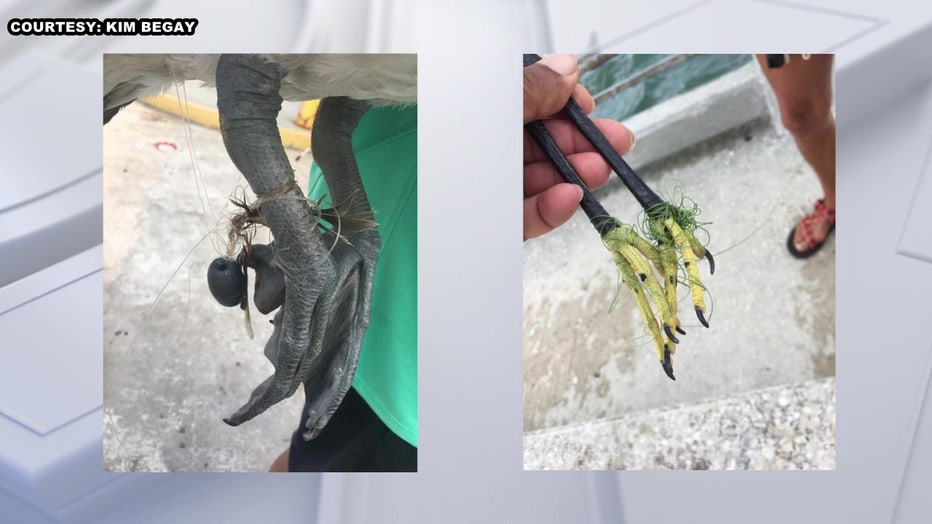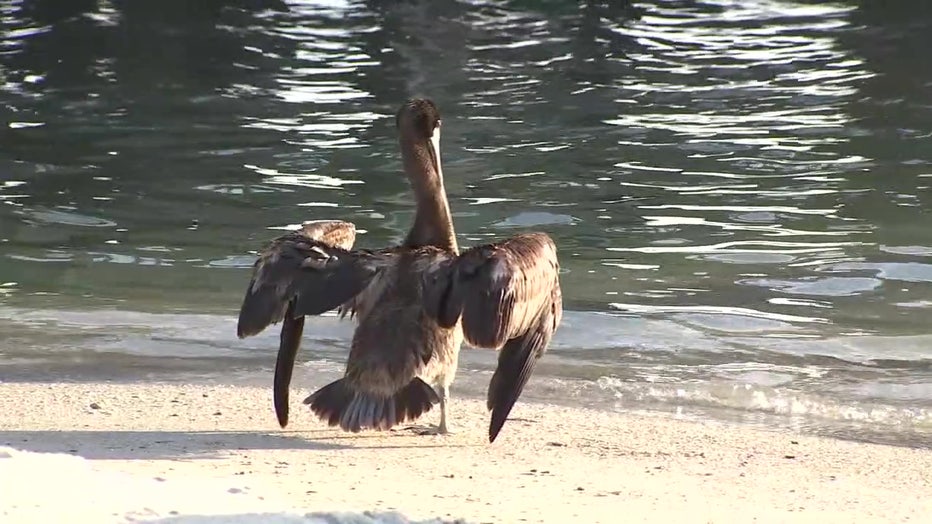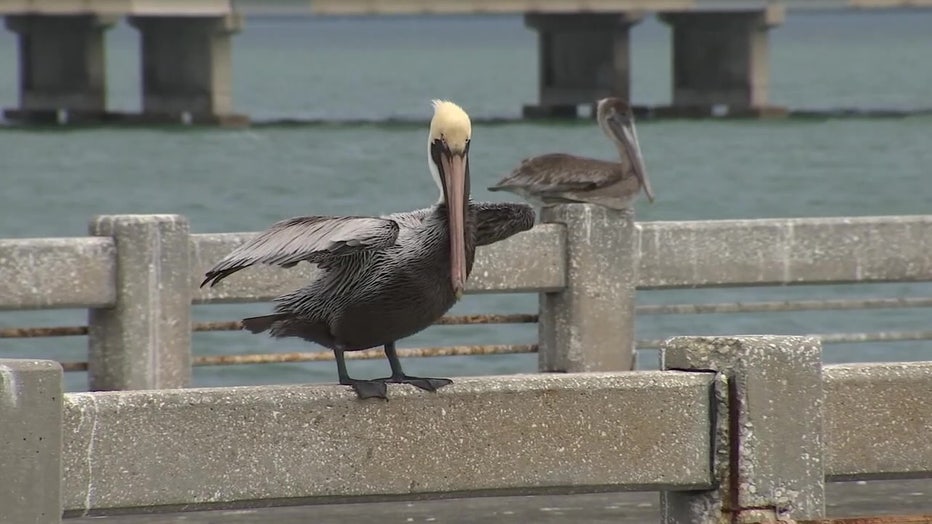Fishing line, hooks leading cause of brown pelican deaths, officials say
TAMPA, Fla. - Fish hooks and line entanglements are just some factors driving the decline in the brown pelican population. Rescuers said it's grown to nearly a troubling level with human-created threats now the leading cause of death among Brown Pelicans.
In one recent rescue case, an X-ray showed where a pelican swallowed a fishhook. In another disturbing image, a pelican can be seen with a hook near its eye. Thankfully, it was safely removed, and the pelican is OK, but as a whole, advocates said these rescues have grown to an astounding level.
"It's really frustrating, and it causes us great concern for the stability of the pelican population in Tampa Bay," Friends of the Pelicans Vice-Chair Kim Begay said.

According to Begay, line entanglements and fishhooks are the leading cause of death among brown pelicans. The Skyway Fishing Pier, which is one of the longest in the state, is the epicenter of the problems.
MORE: Pinellas deputies rescue lost sea turtle hatchlings found wandering at St. Pete Beach hotel property
Previous bouts of red tide wiped out much of the food source causing them to flock to the pier for food, but because of its configuration, it can be dangerous to rescue them if they get tangled.

"You can't get the pelican up on the pier to help it when you tangle it, so a lot of people cut the line," Begay said. "And then the pelicans fly away with a large amount of line hanging off, and then they go to roost and sleep in the mangrove rookeries and get tangled up and end up hanging there."
One video of a pelican shows a hook attached to its leg, which a rescuer later helped to release.
PREVIOUS: 'Ghost gear' kills thousands of fish, marine animals each year
Audubon Florida and the Florida Fish and Wildlife Conservation Commission (FWC) are preparing to launch a new study, which will include outfitting pelicans near the Skyway with plastic bands – each with a number. Officials will be able to track their movements on a massive scale, and it'll give researchers one of the closest looks yet at what's happening to their population as a whole.

"If they find a dead one, they're going to be documenting it, how many times it's been hooked, if it hasn't been checked, how it's doing, if it's a juvenile, if it's starving to death and has to come into rehab. All that will provide very useful data," Begay said.
The population tracking program is set to begin sometime next year.
If you see a pelican in distress, call the FWC Hotline at 1-888-404-3922.

